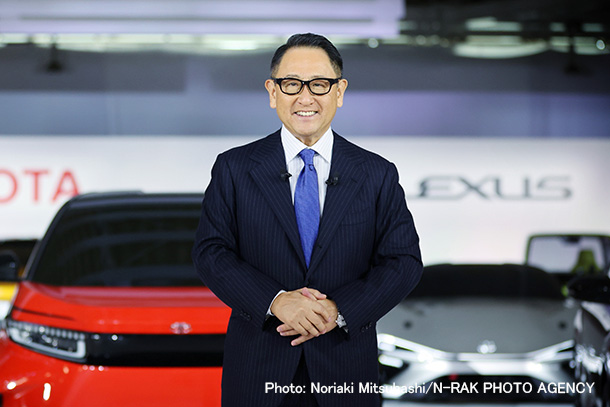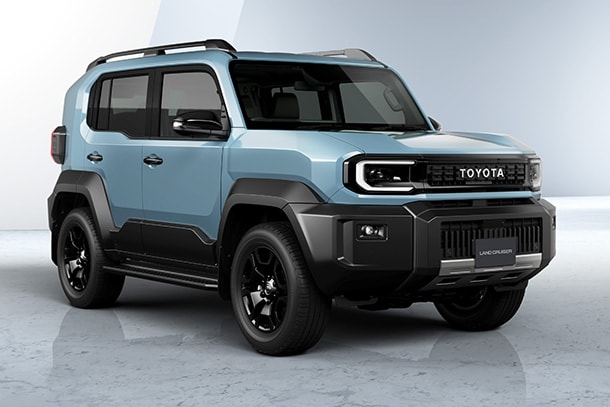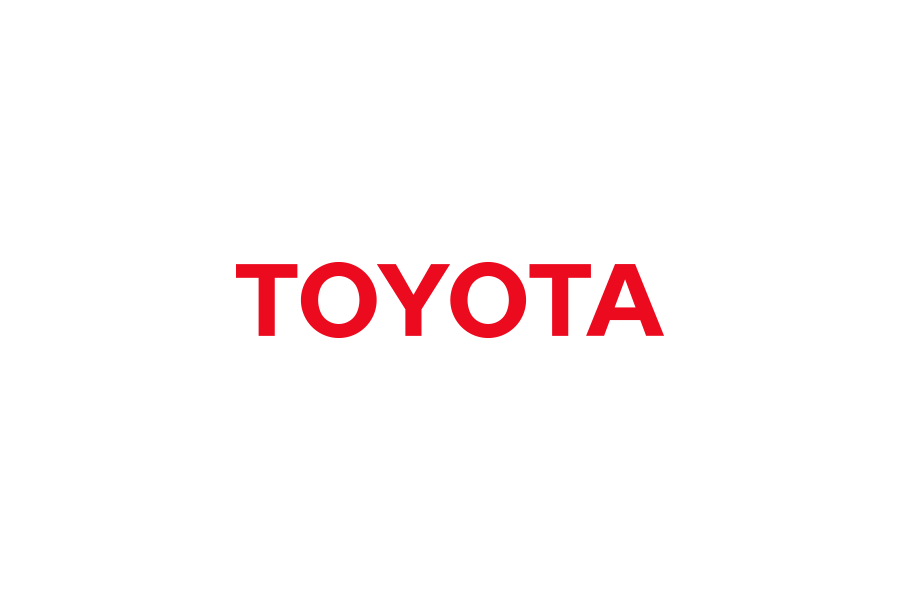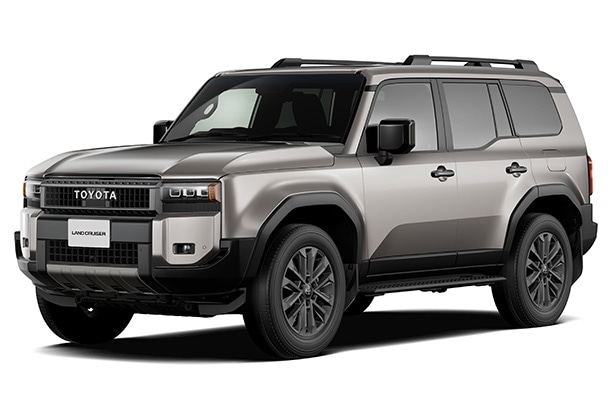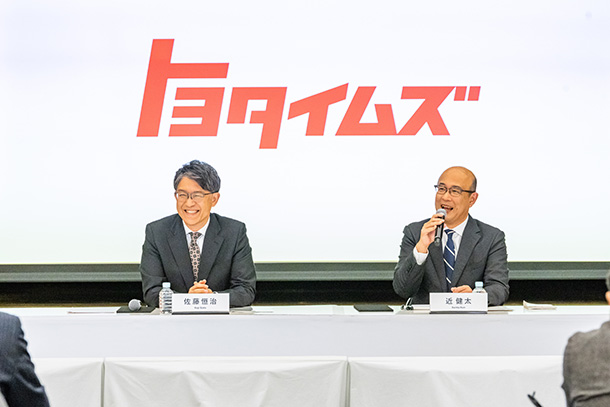Reforming Our Company to Become a "Mobility Company"
Toyota's growth to date is within the established business model of the automotive industry. In light of technological innovations in "CASE,"* the very concept of the automobile is on the verge of major change. Given this situation, we must transform our business model into one that is in line with the CASE era.
| * | CASE refers to the new areas of "Connected," "Autonomous/Automated," "Shared," and "Electric." |
|---|
Transforming the Business Model for the CASE Era
As we make changes to our business model, it is crucial that we go back to the basics, that is, our roots, tore-examine the role Toyota should play and consider how we should proceed, for example, in the advancement in electrification. Given that people can only contribute to the environment when eco-friendly technologies are widely used, we realized that we need to embrace fresh ideas and new ways of thinking.
Therefore, rather than focus solely on passenger cars and individual customers, we can spread these technologies via commercial vehicles and vehicles for government offices and fleet customers. Rather than conduct development on our own―without friends and partners―we can partner and collaborate with others who share our aspirations. Rather than keep our patents to ourselves, we can open them up and create more new friends. Rather than sell only cars, we can provide various services in which vehicles are incorporated into a system and focus more broadly and openly on contributing to the improvement of society.
In other words, we recognized that the path to a new business model could only be reached by transforming our ways of thinking.
From now, information will link all items and services that support people's daily lives. Considering this, we will strive to adopt a broad, community-level and society-level perspective that includes cars, which in essence is the concept of the "connected city."
In May 2019, we reached an agreement with Panasonic Corporation toward the establishment of a new joint venture to advance "town development" with the shared goal of creating new lifestyle value for communities as a whole. Building on the housing businesses of both companies, we are dedicated to the challenge of providing new kinds of lifestyles by bringing together the strengths of Toyota, with its vehicle and connected businesses, and Panasonic, with its home appliance, battery, and IoT businesses.
Toward a Future Centered on People
From the perspective of the connected city, it is clear that Toyota will not be able to survive the coming era on our own, nor just by focusing solely on cars. We need "friends" with whom we can pool our strengths to mutually strengthen our competitiveness. At the same time, alongside the development of CASE technologies, automation is gradually advancing across society.
In this era of "making friends," namely building alliances, and this era of automation, I believe that insights into how we can battle for survival in this era can be found in the Toyota Production System (TPS), Toyota's very bedrock.
Toyota's roots extend back to the automatic loom invented by Sakichi Toyoda. The greatest feature of this loom was that it would automatically stop if a single thread broke. I see in this the origin of not only Toyota's dedication to preventing the production of defective products, but also our belief that we should not make people into mere machine overseers. At Toyota, we call this approach "intelligent automation," or "automation centered on people."
Kiichiro Toyoda, who launched automobile production, added the idea of making only what is needed, when it is needed, and in the amount needed to the idea of automation with people. This approach, which we call "Just-in-Time," amounts to the ultimate in sincerely anticipating and fulfilling customer needs, staying just a bit ahead of their expectations.
These two concepts―automation with people and Just-in-Time―are the pillars of the TPS. What both have in common is that people are at the center.
I believe that the more automation advances, the more the ability of the people using it will be put to the test. Machines cannot improve unless people do, too. Developing people with skills that can equal machines and senses that surpass sensors is a fundamental part of Toyota's approach.
In addition, the crucial factor in making friends is people. In other words, effective partnerships and alliances are not necessarily formed by the logic of capital or numbers. Only through connections formed between people who share aspirations, understanding, and trust can we create the future together.
Unwavering Commitment to the Development of Our People
Toyota believes that "monozukuri (manufacturing) is about developing people." This philosophy has always served as the basis of how we develop our people. As we enter this once-in-a-century period of profound transformation, I believe we should renew once again our focus on the effective development of our people.
This autumn, in a message to employees, I spoke about two key strengths that will be indispensable to surviving in the coming era.
The first strength is a "competitiveness unique to Toyota," which is TPS and our ability to refine costs while relentlessly pursuing the ideal balance between quality and cost. The leaders of Toyota including Kiichiro Toyoda worked earnestly to build ever-better cars with the desire to serve our society, our customers, and someone other than ourselves. A constant Kaizen (continuous improvement) mindset is the spirit of TPS itself, and represents the values that Toyota has long treasured. Regaining these values is what I see as corporate culture reform, reform that will obliterate the "concept of non-crisis," I believe.
The second strength, "compassion," is the ability to understand and respect the positions and thinking of others and to get them on board. At the meeting, I spoke about the Five Main Principles of Toyoda and called for a return to the spirit of Toyota's founding. This is because I believe that these main principles exemplify the compassion and strength of character necessary to survive the coming era.
People who possess these two strengths―competitiveness unique to Toyota and compassion―are best developed in front-line operations. To equip ourselves for the transformational period in which we find ourselves, we will therefore return to "prioritizing real-world" experiences at the genba (on the front lines), and putting our fullest efforts into developing the people who will build the future.
I hope you will look forward to the future of Toyota, and I ask for your continued confidence and support.
President, Member of the Board of Directors
Toyota Motor Corporation


